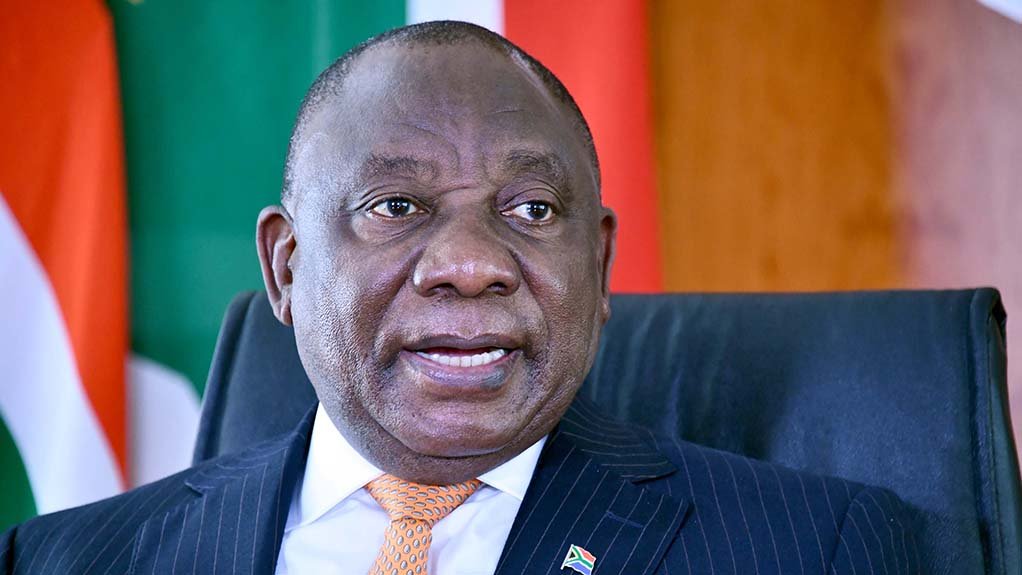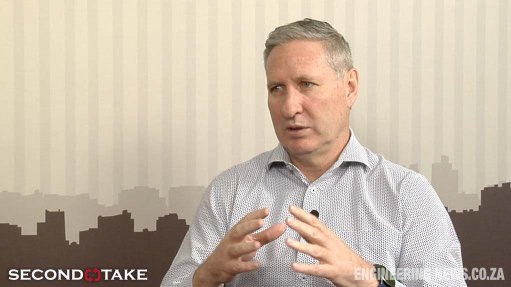The taxi industry is 'the lifeblood of public transport', but we must fix problems – Ramaphosa
President Cyril Ramaphosa has described the taxi industry as the "lifeblood of our public transport system", but has also emphasised that problems need to be tackled.
Ramaphosa - who is self-isolating after possible exposure to Covid-19 at a fundraiser event over the weekend - addressed various stakeholders on Thursday a three-day taxi lekgotla that kicked off in Boksburg, in Ekurhuleni, via a video link.
The government is looking at different ways to formalise and regulate the taxi industry and the Department of Transport will be hosting "robust discussions and engagements" with the taxi industry and key stakeholders.
"Over the next three days we will be charting the course for a reimagined, better-regulated and empowered industry. The taxi industry is the lifeblood of our public transport system," Ramaphosa said, after apologising for his physical absence.
"Since the late 1970s, it has served our people by providing an accessible means of public transit in nearly every corner of the country. The sector emerged at a time when apartheid spatial planning severely restricted people's access to safe and reliable transport. From its humble beginnings of a few operators, mainly in the urban centres, the industry has grown from strength to strength," Ramaphosa said.
He pointed out that today, most public transport commuters use taxis, followed by buses and trains. The industry is a major source of business creation, with about 150 000 taxi business owners in operation, the president said. It is a major employer of around 300 000 drivers and 100 000 rank marshals.
Taxi industry one of SA's most important sectors
"The taxi industry is therefore one of the most important sectors in our economy. This makes it all the more necessary that there is transformation and empowerment with real benefits to the businesses involved."
Ramaphosa said high barriers to entry, such as the cost of vehicle financing and maintenance, were threatening business viability.
"Badly maintained and old vehicles threaten the safety of passengers and other road users.
"We share a common aspiration to see the minibus taxi industry overcome its challenges, adapt in response to the demands of modern public transportation, and ultimately to grow and thrive. At the heart of all our endeavours is formalisation, regulation and economic empowerment."
He said this three-pronged strategy reflected the recommendations of the National Taxi Task Team, set up in 1995 to look at challenges facing the industry.
"Now, 25 years later, we are taking stock of how far we have come. From this lekgotla, we need to come up with concrete measures to ensure the long-term sustainability of this important industry."
Several challenges
Ramaphosa touched on several challenges that have tarnished the reputation of the industry.
These include the issue of labour relations and allegations of exploitation of workers; the high number of road accidents involving taxis; the industry's response to the rise of e-hailing services; and compliance with tax laws.
"We also need to address the conflict relating to competition over routes and the associated acts of violence and criminality.
"Just as the industry must itself address and overcome issues of safety and violence, we as government remain committed to driving interventions that strengthen the industry. That is why among the issues that will be discussed at this lekgotla is that of subsidisation. We have invested substantially in the Taxi Recapitalisation Programme and will continue to leverage its potential. We will be giving renewed attention to supporting business growth in the sector, especially to empower previously disadvantaged individuals such as women.
"I am pleased that issues like access to finance and skills development will also be discussed here, because they are crucial in determining whether a fledgling taxi business succeeds or fails. Formalisation means greater regulation; and the compact that must emerge from this lekgotla must be anchored in the rule of law."
Ramaphosa emphasised that illegal operations that affect both the industry and government and are a catalyst for conflict must be eradicated. "Illegal operations threaten the safety of passengers and open the door for licensing and insurance fraud."
Given its financial size, formalising the taxi industry is a vital step towards ensuring its contribution to the national tax revenue base, he added.
"And importantly, formalisation will benefit not just operators but workers who will be able to benefit from social support like the Unemployment Insurance Fund and training funded by the Skills Development Levy. We must speak as one on the need for professionalism.
Industry often associated with disregard for the law
"This lekgotla must be a turning point for an industry that is too often associated with disregard for the rule of law and the rules of the road, the abuse of customers and conflict.
"We must seriously and honestly confront the associations of the taxi industry with sexism and gender-based violence. We must work together, as government and all industry stakeholders, to ensure that women are safe – and feel safe – when travelling by taxi."
As we rebuild our economy in the wake of the Covid-19 pandemic, the taxi industry needs, and will receive, our full support, Ramaphosa told delegates.
"You are a critical part of the South African economy and society. You create businesses and support jobs, both directly and indirectly. And as the sector has so clearly demonstrated during this pandemic, you remain fully committed to playing your part as responsible citizens."
The president said the taxi industry has been active in driving government's messages around social distancing and good hygiene in its operations.
"And difficult though it was for your operations, you complied with the loading regulations in place during the lockdown. I want to take this opportunity to thank the industry for its support. You have helped keep our people safe and saved lives."
Vital to work towards unity
Ramaphosa said since the advent of democracy, the government has prioritised forging durable and lasting social compacts with the industry in support of transformation.
"If we are to renew and sustain our social compact during this time of rebuilding, it is vital that we work for unity within the taxi industry. The industry needs to be able speak with one voice and act together in advancing the common interests of all its stakeholders.
"Our Economic Reconstruction and Recovery Plan sets out a number of interventions to spur economic activity, to create jobs and to embark on a renewed industrialisation path. If we are to meet the targets we have set ourselves, an efficient, safe and reliable public transport system will be key to transport the workforce. What we strive for is for all forms of public transit to be integrated to allow people to seamlessly make use of all modes available. It is only through an integrated system that we are able to offer the best value for money and convenience to the public."
Lifeline to our people
Since its inception, the taxi industry has been a lifeline to our people, Ramaphosa said.
"You are making a difference in the lives of our citizens daily, whether it is a grandmother who needs to go collect her pension, the worker on the way to an office or factory, or a learner who needs to get to school. "We salute you for all you do to keep our country going.
"And we give you our assurance that we remain committed to doing whatever is necessary to bring the industry into the mainstream so that the invaluable service you provide can be improved.
"As I have called on other sectors that are key to our economy, let us use the opportunity presented by the Covid-19 crisis to build back better."
Ramaphosa wished stakeholders well in their deliberations over the next three days.
Article Enquiry
Email Article
Save Article
To advertise email advertising@creamermedia.co.za or click here
Comments
Press Office
Announcements
What's On
Subscribe to improve your user experience...
Option 1 (equivalent of R125 a month):
Receive a weekly copy of Creamer Media's Engineering News & Mining Weekly magazine
(print copy for those in South Africa and e-magazine for those outside of South Africa)
Receive daily email newsletters
Access to full search results
Access archive of magazine back copies
Access to Projects in Progress
Access to ONE Research Report of your choice in PDF format
Option 2 (equivalent of R375 a month):
All benefits from Option 1
PLUS
Access to Creamer Media's Research Channel Africa for ALL Research Reports, in PDF format, on various industrial and mining sectors
including Electricity; Water; Energy Transition; Hydrogen; Roads, Rail and Ports; Coal; Gold; Platinum; Battery Metals; etc.
Already a subscriber?
Forgotten your password?
Receive weekly copy of Creamer Media's Engineering News & Mining Weekly magazine (print copy for those in South Africa and e-magazine for those outside of South Africa)
➕
Recieve daily email newsletters
➕
Access to full search results
➕
Access archive of magazine back copies
➕
Access to Projects in Progress
➕
Access to ONE Research Report of your choice in PDF format
RESEARCH CHANNEL AFRICA
R4500 (equivalent of R375 a month)
SUBSCRIBEAll benefits from Option 1
➕
Access to Creamer Media's Research Channel Africa for ALL Research Reports on various industrial and mining sectors, in PDF format, including on:
Electricity
➕
Water
➕
Energy Transition
➕
Hydrogen
➕
Roads, Rail and Ports
➕
Coal
➕
Gold
➕
Platinum
➕
Battery Metals
➕
etc.
Receive all benefits from Option 1 or Option 2 delivered to numerous people at your company
➕
Multiple User names and Passwords for simultaneous log-ins
➕
Intranet integration access to all in your organisation





















